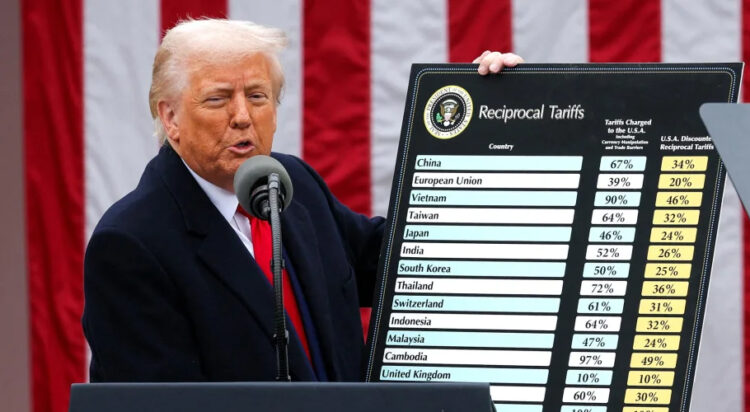The Pakistan Institute of Development Economics (PIDE) has warned that newly proposed U.S. tariffs, stemming from policies introduced during the Trump administration, could result in annual economic losses of up to $1.4 billion for Pakistan.
The warning follows an announcement last week by former U.S. President Donald Trump, who unveiled a broad tariff regime affecting all U.S. trading partners. The measures include a baseline tariff of 10 percent on all imports, with elevated duties for specific nations. Initially, a 29 percent tariff was proposed for Pakistani imports; however, subsequent revisions saw the suspension of all additional tariffs—except the baseline 10 percent—with the exception of China, which now faces a whopping 145 percent duty.
PIDE has identified Pakistan’s textile sector as the most vulnerable to the new tariff structure, given its central role in the country’s export economy.
Dr. Nadeem Javaid, Vice Chancellor of PIDE, acknowledged the serious threat posed by the tariffs but urged policymakers to also view the challenge as an opportunity to recalibrate Pakistan’s export strategy.
“This is not merely a moment of risk but a chance to chart a more resilient and strategic path for our exports,” Dr. Javaid said.
Also read: Pakistan’s exports to North America rise by 9.76% to $4.2 billion in July-Feb
In its policy note, PIDE emphasized that international trade should be viewed as a mutually beneficial process rather than a zero-sum contest. It warned that the proposed tariff regime could inflict significant harm on the longstanding economic relationship between Pakistan and the United States.
“Pakistan’s trade outlook is shrouded in uncertainty,” the institute noted, adding that the potential impact of the U.S. tariffs on the country’s export sector could be severe and far-reaching.




































